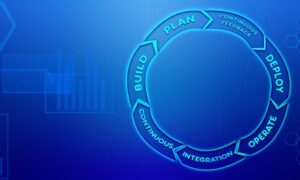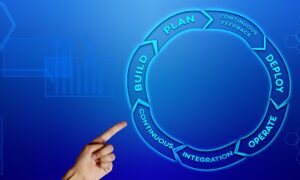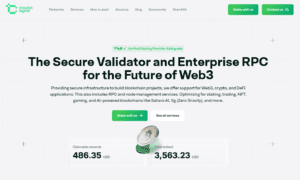In the contemporary landscape of technology, DevOps as a Service (DaaS) and cloud computing have emerged as a powerful combination, revolutionizing the way businesses approach software development and operations. This synergistic relationship between DaaS and cloud computing offers numerous benefits, enhancing efficiency, scalability, and agility in business operations. For businesses looking to leverage this synergy, choosing the right devops services provider is key to unlocking the full potential of these transformative technologies.
Understanding the Synergy
DevOps as a Service (DaaS)
DaaS streamlines the DevOps process by offering it as a managed service. This approach leverages cloud-based tools and platforms, making it easier for teams to collaborate, automate, and scale their operations.
Cloud Computing
Cloud computing provides scalable and flexible resources over the internet. It’s the foundation that enables the seamless execution of DevOps practices by providing the necessary infrastructure, platforms, and software.
The Symbiotic Relationship
- Enhanced Collaboration and Automation
The integration of DaaS in cloud environments facilitates improved collaboration and automation. Cloud platforms offer tools that simplify version control, continuous integration, and deployment, making these processes more efficient and less error-prone.
- Scalability and Flexibility
DaaS and cloud computing offer unmatched scalability and flexibility. Businesses can easily adjust their resources based on demand, ensuring they only pay for what they use, which is crucial for managing costs and accommodating growth.
- Improved Efficiency and Speed
The combination of DaaS and cloud computing significantly speeds up development and deployment cycles. This efficiency is due to the streamlined workflows and automated processes enabled by cloud technologies.
- Better Resource Management
Cloud computing allows for more efficient resource management. DaaS leverages this by optimizing the use of resources in software development and operations, ensuring maximum efficiency.
Overcoming Challenges
Integrating DevOps as a Service (DaaS) with cloud computing, while beneficial, comes with its unique set of challenges. Addressing these effectively is key to reaping the full benefits of this synergy.
- Security and Compliance
- Implementing Robust Security Measures: Ensuring top-tier security in cloud-based DevOps environments is crucial. This includes adopting advanced encryption, secure access controls, and regular security audits.
- Compliance with Regulations: Compliance with industry standards and regulations, such as GDPR, HIPAA, or PCI DSS, is essential. Partnering with a DaaS provider that is well-versed in these regulations can simplify compliance.
- Managing Complexity
- Streamlining Operations: The complexity of cloud-based DevOps environments can be overwhelming. Utilizing tools that streamline operations, such as automated deployment and monitoring solutions, can help manage this complexity.
- Provider Expertise: Choosing a DaaS provider with expertise in managing complex cloud environments is vital. They can offer guidance and support, simplifying the management of these systems.
- Integrating with Existing Systems
- Seamless Integration: Integrating cloud-based DevOps with existing on-premises systems can be challenging. Ensuring seamless integration requires careful planning and execution.
- Customization and Adaptation: Customizing cloud solutions to fit the specific needs of a business and its existing infrastructure is essential. This may involve adapting tools and processes to ensure compatibility.
- Skill Gaps and Training
- Addressing Skill Gaps: The evolving nature of cloud and DevOps technologies may lead to skill gaps within teams. Addressing these gaps through training and upskilling is crucial.
- Continuous Learning Culture: Fostering a culture of continuous learning and development helps teams stay abreast of the latest advancements in DaaS and cloud computing.
- Cost Management
- Budgeting and Forecasting: Effective cost management is essential. This involves budgeting for cloud resources and forecasting future needs to avoid unexpected expenses.
- Optimizing Resource Usage: Regularly monitoring and optimizing the use of cloud resources ensures that businesses are not paying for unused or underutilized services.
Future Prospects
The future looks promising for the relationship between DaaS and cloud computing. Innovations in cloud technology and DevOps practices will continue to enhance their synergy, offering even more benefits to businesses.
As emerging technologies like AI and ML become more integrated into cloud and DevOps, businesses will need to stay adaptable and open to these new opportunities.



































